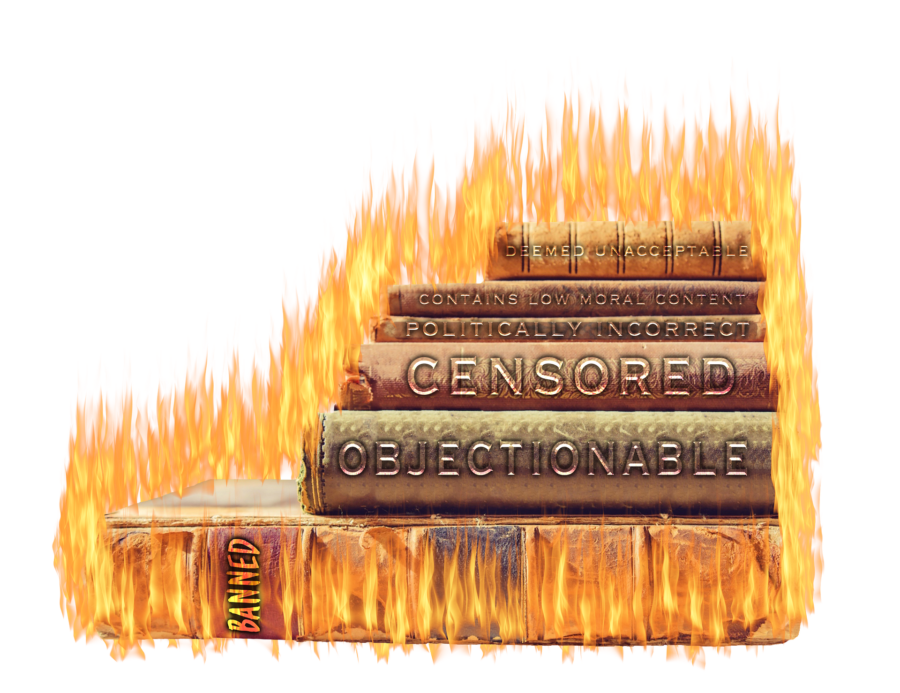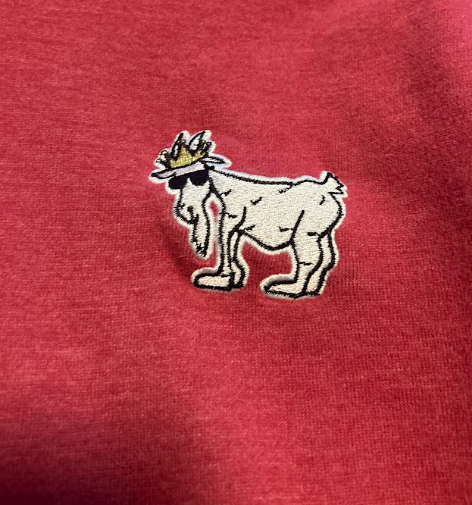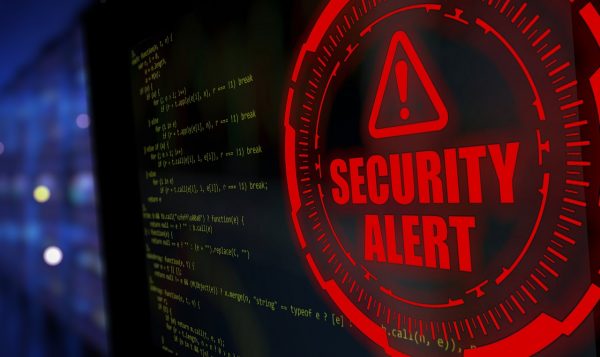The Banning of Books: Censorship to the Extreme
Books are the most useful vessels for knowledge. They can recall important moments of history, take you on a fictional journey, or teach you a moral lesson. Books should be available anywhere, without someone or a group of people censoring them.
The banning of books is not a new issue, in fact it started all the way back in the 1600’s with the Puritans. Overtime and in recent news, however, more and more schools have banned books to the extent that libraries have closed down because they refused to take books off the shelves. Books shouldn’t be banned because it will affect the educational system and its students, who will never learn the valuable lessons the pages hold.
According to the American Library Association, the banning of books happens to be most prevalent in Florida, Texas, Utah, Missouri and South Carolina. 30% of these books are banned because they contain people of color or themes of racism, while 26% contain LGBTQ+ individuals. Prior to 2020, most of the bans were brought out by individual parents who saw problems with their children reading books. After this, elected officials started following suit and it a conservative political movement.
There is a reason to ban or challenge books – if it preaches hate speech or shows violence to children, for example, not because they are inclusive and teach children about history.
So far this year alone, Texas and Florida have banned 600 books from their schools, which is a small amount compared to the 4,000 that have been banned just in the United States, as reported by The Guardian. Some of the content in these books are too mature for children in elementary schools perhaps, but to ban young adult books from all public schools is detrimental to their learning. These books teach teens to think outside the box, and some teach about their growing bodies. How else will they learn about an ever evolving society and that it’s okay to be different?
Here are some specific banned books from a list of every book that has been eradicated:
Night by Elie Wiesel, a personal account of living through the holocaust in concentration camps.
Sold by Patricia McCormick, a story about a girl in Nepal who has to leave her home and provide for her family.
The Hate U Give by Angie Thomas, a story about gun violence in predominantly black neighborhoods.
Drama: A graphic Novel by Raina Telgemeier, a story about a young girl who wishes to be a part of the middle school’s production, but is only a set designer.
The Kite Runner by Khaled Hosseini, a story about unlikely friendship during a time of change and destruction in Afghanistan.
This Book is Anti-Racist by Tiffany Jewell, a book about gaining a deeper understanding of the past of racism and how it can look in today’s society.
Maus by Art Spiegelman, a graphic memoir of a son telling the story of his father, a Jew who was persecuted in World War II.
The themes in these books are not only relevant to older audiences in high schools, but they can inform younger middle school audiences as well. The Holocaust for example, is a very important part of our history. As we know, history very often repeats itself when we don’t learn from our mistakes. Why would someone ban preteens from learning about something so significant? The excuse from some government officials is that books such as these are too explicit, and offensive to specific groups. This would be acceptable if these children weren’t also exposed to video games like Call of Duty, GTA, or Sniper Elite that showcase extreme violence. The main theme of these games is to kill your opponent and children start playing them as young as 11 years old; so what is so terrible about learning about an event in history?
As previously mentioned, a large number of these banned books have themes of racism in our society and how it used to be. There is no good excuse to censor lessons about racism. Children from a young age should learn not to have prejudice and be accepting of others. One of the books above, The Hate U Give, is a fictional piece that reflects problems the black community faces in real life. Police brutality is important for people from all walks of life to learn. No age is too young to learn these life lessons that will inevitably shape them as human beings in the future.
Not only do book bans affect children in schools, but they affect librarians everywhere as well. Librarians all over, especially in the Southern states where banning is more prominent, have been harassed and berated by parents. Professional librarians often consult with parents about the proper reading material for their children, and now these parents are verbally attacking them if they feel the books recommended are inappropriate. This places librarians in danger of not only losing their jobs, but above all it threatens their personal safety, as reported by PBS NewsHour.
The main reason why books shouldn’t be banned is because students won’t be able to understand different views, cultures, and religions. Parents brought up concerns with specific books because they held information that was different from what they believed. Books are not meant to turn someone against their own values, but are there to teach people about different points of views. Parents should allow their children to read books even if they oppose their own beliefs not only to teach them about different walks of life, but also to allow them to embrace differences in society.
More recently, Pen America, a nonprofit organization and Penguin Random house, a large book publisher, filed a lawsuit against Florida’s school district for its banning of books from their libraries. People affected by the book bans have taken part in the lawsuit as well. The companies and citizens of Florida argue that the banning of books violates the First Amendment, and that is why they have decided to take action against this epidemic.

Brianna is a sophomore at LRHS and this is her first year writing for The Lancer Ledger. She is excited to be taking Journalism 1 because it will help...







